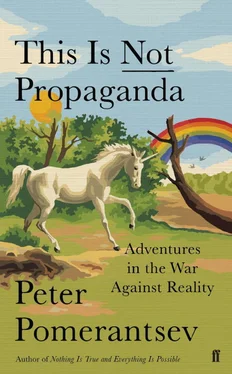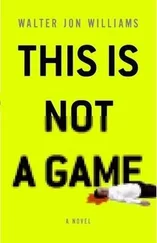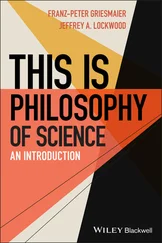Growing up Rashad had always known that he was different. His father, who died when Rashad was eight, had come to England in the 1960s to work in the steel mills. He had done well, bought a house, opened a restaurant, wore a suit he had custom-made from the tailor on the corner, watched the BBC news religiously twice every evening. But for all this veneer of Englishness, both of Rashad’s parents spoke with strong Bangla accents. His home smelt different to English ones. He was a different colour.
And then there was the God thing. Rashad was religious in the way everyone in his community was: it was just something that was indelibly part of you, like a limb, and something most English people just couldn’t understand. But Rashad had never defined himself as ‘Muslim’. In the early 1990s all the talk was of an Asian identity, ‘Asian British’, which encompassed Sikhs, Hindus, Indian Muslims, Pakistani Shia. But what did these Asians really have in common, when back in their homelands they were at war with one another? Rashad had visited Bangladesh and knew he didn’t belong in the home of his parents’ past. He was aware he wasn’t quite English either. Now he was about to be offered a new home, a place where he would belong perfectly because it didn’t exist yet: an Islamic state.
Each week Rashad and the other members of his study group would immerse themselves in Hizb’s founding texts, which laid out in stunning detail every aspect of how the ideal Islamic state should look. There were books on law, government, ethics, epistemology; everything from the powers to be granted to judges through to how reality was shaped by a priori thoughts. Hizb had been founded in the 1950s by a Palestinian Islamic scholar, Taqiuddin al-Nabhani, who had previously been a senior member of the Arab Socialist Ba’ath Party. For al-Nabhani the creation of Israel was a sign that Muslims were weak, unable to stand up for each other, corrupted by Western notions such as ‘the nation’, which had splintered them into different countries. It was the very language and concepts through which people saw the world that had to change.
At the foundation of Hizb’s ideology was the idea of the ‘Islamic personality’. [1]It argued that a person has natural instincts that have to be fulfilled, but training yourself to think in the correct way would channel those instincts into the ‘right’ behaviour. So, for example, man has a natural instinct for security, which is articulated in the quest to acquire things and property. Marxism suppressed that instinct and was therefore destined to fail. Capitalism, however, overindulged it, while undermining another instinct, defined by Hizb as ‘procreation’, which expressed itself as the need to feel part of a community. Political Islam fulfilled both needs: it allowed you to both fulfil the need for security by allowing a certain amount of private property, and for procreation by defining your obligations to the ummah, the greater community of Muslims.
Rashad asked his study group leader what methodology would bring about an Islamic state. The man invited him for a drive in his gold Honda Shuttle.
As they drove through Sheffield, the group leader explained to Rashad that their plan was to convince the military in Jordan, Egypt, Iraq and Syria to launch military coups, take power and then unite into one supra-Islamic state. For a moment Rashad paused: this sounded, even to his sixteen-year-old self, reckless. The group leader saw his reaction and continued: ‘Remember what the Prophet did at Mecca and Medina. He had no forces of his own, but he managed to persuade the tribal leaders to back him and be his army. It’s the same with us.’
That coming together of past and present, of holy books and current history, helped Rashad hurdle his initial doubt. And soon enough the notion seemed less fantastical. The movement was growing stronger by the day. Between 1996, when Rashad joined, and 2003 the number of activists in the UK grew from thirty to 3,000, with hundreds of thousands globally. The party leadership issued statements claiming that generals throughout the Middle East were turning in their favour. The leadership consisted of al-Nabhani’s successors and a handful of close allies, who lived in such secrecy in Lebanon and Jordan that when they ‘spoke’ at Hizbi gatherings across the world, it was only via audio link, their voices beamed in to thousands of followers in a hall, but their faces not revealed.
By the turn of the century Rashad was one of the leaders of Hizb in the UK. He would organise university debates about, for example, whether it was possible to be both Muslim and British simultaneously, arguing that the two were incompatible. In 2000, at the age of twenty, he authored a core text of Hizb literature, a copy of which would later be found in the library of Osama bin Laden in his safe house at Abbottabad. [2] The Method to Re-Establish the Khilafah spends over three hundred dense pages outlining Koranic arguments for how to correctly establish the Islamic state. The process starts with ‘Culturing’ – uniting drives, instincts and ideas to form the Islamic personality. Then comes the ‘Interactions’ stage, the public outreach campaigns that are meant to convince populations in the Middle East that their interests are best served by military coups to overturn their corrupt governments, who are nothing but lackeys of Western colonialism.
‘After this the military would be capable of establishing the authority of Islam… and Jihad to the rest of the world.’
One of Rashad’s many roles was to answer email questions from party members about the finer points of Hizb doctrine, liaising with the heard-but-not-seen leadership on what was the canonical response. He had now read enough religious commentary to know that some of the answers the leadership were giving were simply wrong. When a member asked why the Prophet hadn’t enforced all his decrees onto his followers, the leadership answered that no scholar allowed any Muslim to follow the Prophet’s example in this regard. Rashad was aware that the leadership themselves knew this was false. Many scholars argued that it was acceptable not to enforce all decrees. The leadership were simply misusing people’s ignorance to create a system whereby they had more control. And now that he was better versed in Islamic ideas and history himself, Rashad was discovering that many of the Hizb teachings were factually incorrect. There had never been a golden moment of a Caliphate under a single ruler. There had been many small and fractured treaties throughout Islam’s history, a patchwork of jurisdictions, but there was no original Caliphate to restore.
There had been no one moment when the scales had fallen from his eyes. After eight years Rashad had noticed how far Hizb was from fulfilling any of its promises. The leadership sent circulars stating that their coup d’états were just around the corner, but it was becoming obvious nothing of the sort was happening. Then there was the question of violence. Hizb claimed it opposed violent acts. However, it did not disapprove of others committing them under the right conditions. Officially Hizb had condemned the attacks of 9/11, but only on a technicality: the planes were privately owned; if they had been Israeli ones, it would have been different as Israel was an occupying state. The contradictions seemed, to Rashad, absurd.
He began duelling with the leadership, questioning the movement’s underlying assumptions. Slowly the idea that being Muslim and being English are mutually exclusive fell away, and the notion that the only place where he could be truly fulfilled was in an Islamic state unwound. He found he could be simultaneously Muslim and from Yorkshire, British and Asian, all held together with a core belief in human rights, which he threw himself into vehemently defending, from Palestinians in Gaza to anti-Semitism in Europe.
Читать дальше












